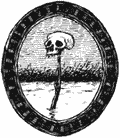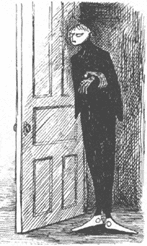Man, I thought I was back on track, but nope. Too much going on and I have zero backlog. Anyway, onward:
Today’s maxim, as translated in the source I’m using, is “Know what you have learned”(Γνωθι μαθων). That seems like a weird phrase, nu? Let’s see if the translation works. (once again, definitions in italics are from my trusty Liddell and Scott Greek-English Lexicon, with occasional support from the Joint Association of Classical Teachers Greek Course, Reading Greek.)
- Γνωθι – aorist imperative of Γιγνωσκω: to perceive, gain knowledge of, mark, and so to know, of persons and things: to be aware of, understand.
- μαθων – aorist 2nd of μανθανω, which in the aorist means: to have learnt, to understand, be acquainted with.
So we have an imperative: perceive! and an object: [stuff] you have learned/understand.
I think the translation as it stands isn’t bad, but “know” has so many connotations. Does it mean “hey, that stuff you learned, you better remember it!” or maybe “learn thoroughly the things you learn.”
I like perceive or mark as translations of Γνωθι, because they’re more specific. To me, they imply that you should be aware of what you’ve learned — and thus, by implication, what you haven’t. So, if you’re a life-sciences major, be aware that what you know about is life sciences, plus whatever you’ve learned from elective courses and life experience/previous schooling.
“Perceive what you’ve learned” also suggests to me that you should notice when you have learned something and then forgotten it. I’m reading it almost in a “take stock of what you’ve learned” way, which I rather like.
It’s easy to forget what we know. Not the info itself, just the fact that we know it. I have a lot of self-care and self-help (and help-others!) tools, but I frequently don’t remember to use them — I don’t remember that I have learned them. Learning you don’t remember you have is useless.
I’ve joked before about making a list of all the various metaphysical things I’ve learned to do over the years, if only to have it for consultation when things aren’t going well. It’d be interesting to try to list all the things I’ve learned, period — for one thing, it’d help me remember that yes, I do in fact know a lot of stuff. As is often the case, the more we know the more we realize we don’t know — and focusing on the negative is a very human trait. It’s important to remember what we do know — and I think that’s the kind of thing this maxim is encouraging.
So, I’m not 100% happy with their translation (it’s literally accurate but doesn’t have the appropriate connotations, to my mind), but the maxim itself is solid advice.



